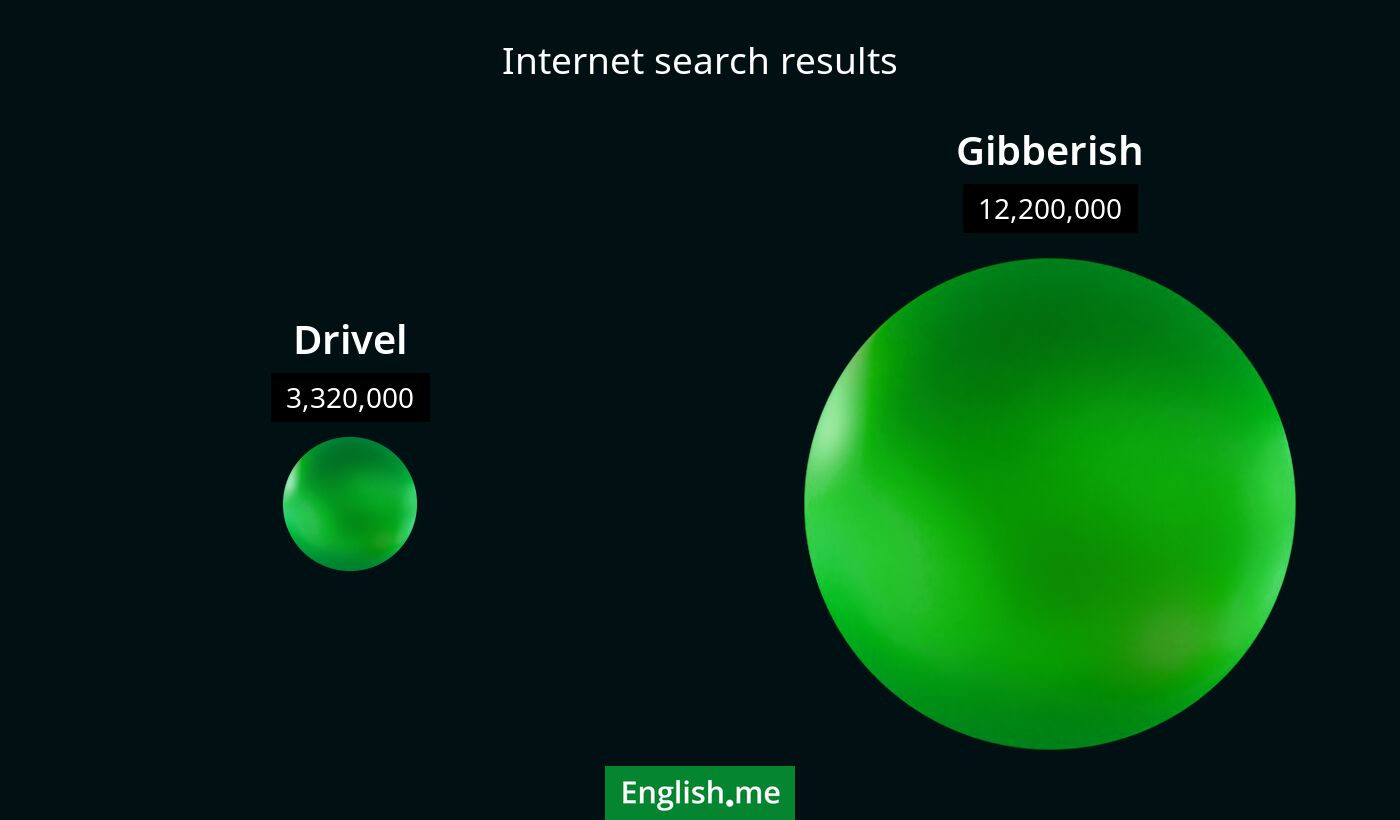"Drivel" vs. "gibberish": when nonsense takes different shapes
Reviewed and edited by  Lloyd Cooper 17/06/2025, 10:31
Lloyd Cooper 17/06/2025, 10:31
English.me team member

 What is similar?
What is similar?
Both "drivel" and "gibberish" refer to speech or writing that is nonsensical or meaningless, often implying a lack of sense or purpose.
 What is different?
What is different?
"Drivel" typically has a connotation of foolishness or childishness and may refer to silly or senseless talk, sometimes with annoyance. "Gibberish" specifically describes language or speech that is impossible to understand, either because it is unintelligible or because it is made up of random or distorted sounds, without necessarily implying foolishness.
 Which one is more common?
Which one is more common?

 Examples of usage
Examples of usage
Drivel- Stop talking drivel and get to the point.
- He filled the meeting with so much drivel that nobody listened.
- The child spoke in complete gibberish when he was excited.
- To everyone else, the computer code looked like gibberish.

 English
English español
español française
française italiano
italiano deutsche
deutsche 日本語
日本語 polski
polski česky
česky svenska
svenska Türkçe
Türkçe Nederlands
Nederlands